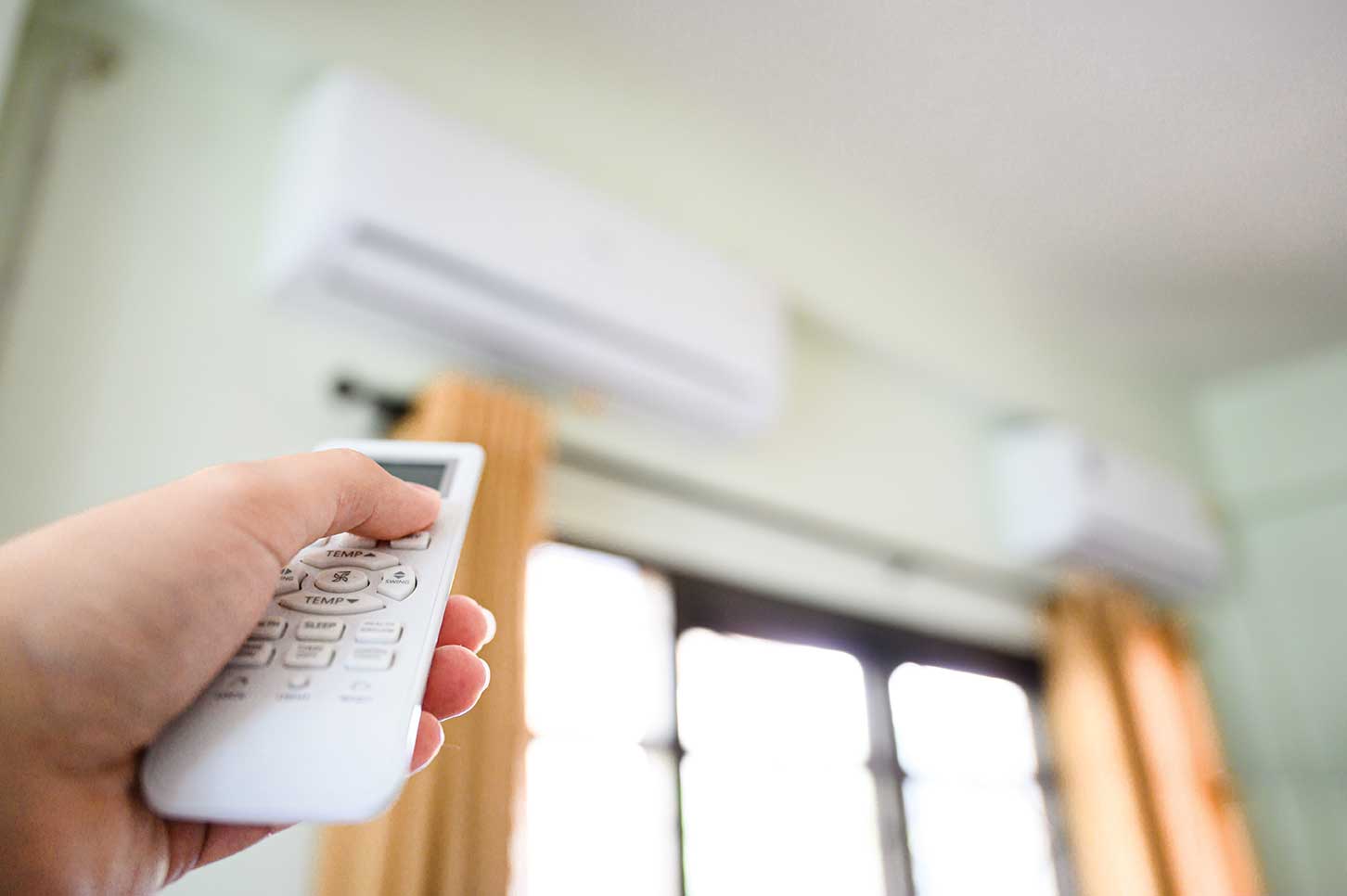1Prevent Heat Gain From The Sun
Sun shining in through windows and doors literally warms your home like an oven. Use window coverings to keep the sun out and your home’s temperature cooler.
2Run Ceiling Fans
Run ceiling fans at a fast speed in a counterclockwise direction to create a wind chill effect. Turn the fan off when you leave the room; fans cool people, not rooms.
3Maintain Your A/C Unit
- For central air, have a professional check the unit annually. He or she will perform a proper tuneup and can spot some potential problems before they become emergencies.
- Change the filter on your HVAC unit regularly all year long.
4Seal Leaks
Cracks and leaks around windows, doors, and utility cut-outs allow warm air to enter the home and cause your A/C unit to work harder. Seal or caulk leaks and holes.
5Use Your Thermostat Wisely
- Try to keep your thermostat as close to the outdoor temperature as possible. The Department of Energy recommends at least 78 degrees when you are home. Turn up the thermostat even higher when you are away to prevent your A/C unit from running unnecessarily. A programmable or smart thermostat automatically adjusts the temperature to ensure you are cooling your home when you need to and not when you don’t.
- When first turning on the air conditioner, don’t turn the temperature way down to jump-start the cooling effect. Your A/C unit doesn’t work faster because the temperature is lower, but it could cause it to run longer than necessary.
6Be Smart About Appliances
- Only run full loads in your washer and dishwasher.
- Let your dishes air-dry instead of using the heat setting. Prop the door open once the final rinse is complete for faster drying.
- Cook or grill outside when you can to avoid running your stove or oven.
- Buy Energy-Star certified appliances; these appliances are guaranteed to run more efficiently than noncertified ones.






